Working For 30 Years, Prof Revives Vechur Cattle Breed From Brink Of Extinction
Padma Shri awardee Kerala's Dr Sosamma Iype embarked upon a mission in the 80s to save the unique Vechur cattle breed from extinction.
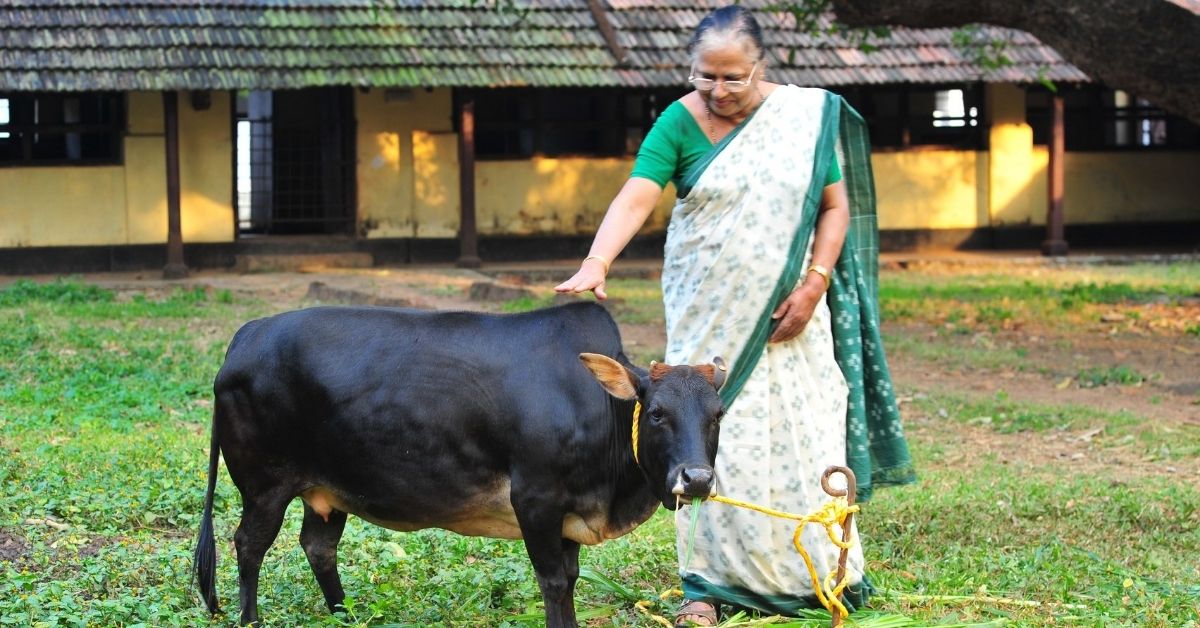
The Vechur cattle, a rare and indigenous breed that is considered one of the smallest in the world, had been near extinction in the 80s.
Named after the village Vechoor, located in Kerala’s Kottayam district, the cattle is known for its high milk yield, which is also known to have medicinal qualities. The cows also require less feed and maintenance.
“In the 1960s, the state government introduced a change in the cattle’s breeding policy in order to enhance milk production,” Dr Sosamma Iype explains in conversation with The Better India. “Following this, there was massive cross-breeding of native cattle with exotic varieties of bulls. This resulted in a decrease in the number of native varieties like Vechur cows, thereby leading to near extinction.”
Since the 80s, Dr Sosamma (80) a retired professor from Kerala Veterinary and Animal Science University, Thrissur, has been at the forefront of conserving the vechur cow. She has been conferred with the Padma Shri for her relentless efforts in work in saving the breed from the brink of extinction and increasing its population.
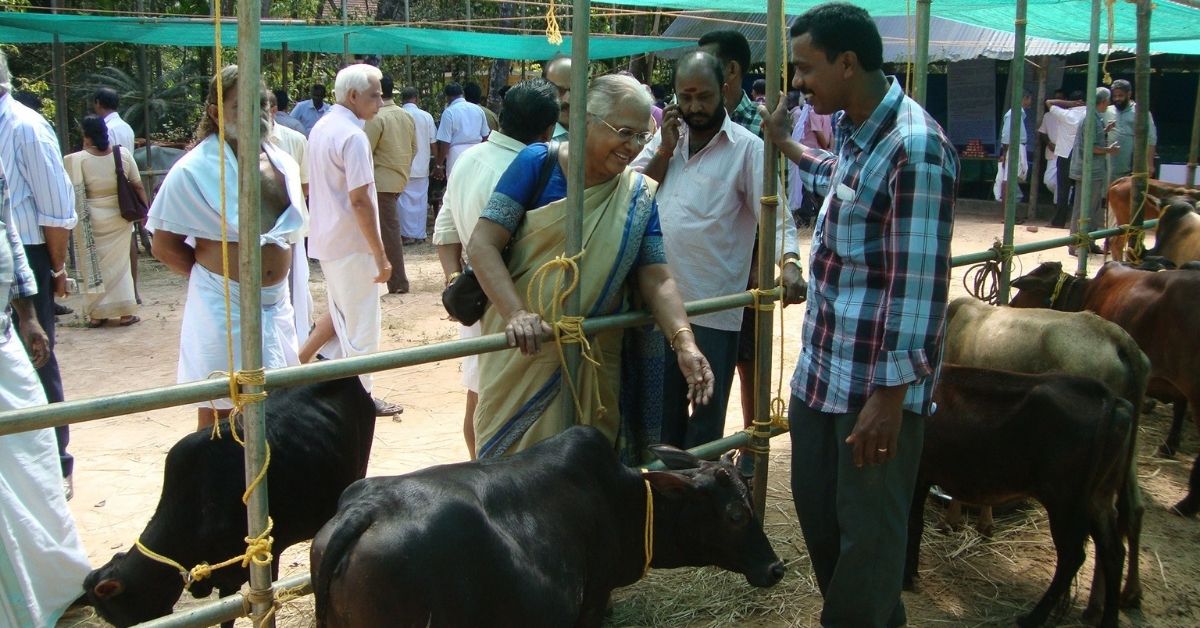
The dream team
Understanding the need to conserve the last available specimen of the variety, Dr Sosamma teamed up with a few students at the university to launch a search for this native breed.
“We launched an extensive search for vechur cows in 1989, after a few of my students in the university approached me in this regard. There were around 15 – 20 students who actively took part in the search over the years. We used to go from one place to another, checking with farmers and people who reared cattle. My students would often rope in their families to search for the cows in their respective native places,” says Dr Sosamma.
She adds, “It was one of the best times in my career. We were all dedicated to the cause and we enjoyed the journey together. Our mission was to save this breed and to give them back to the farmers.”
The search proceeded mainly through the southern districts of Kottayam and Alappuzha, and it took Dr Sosamma and her team a long time to find even a single vechur cow, she says.
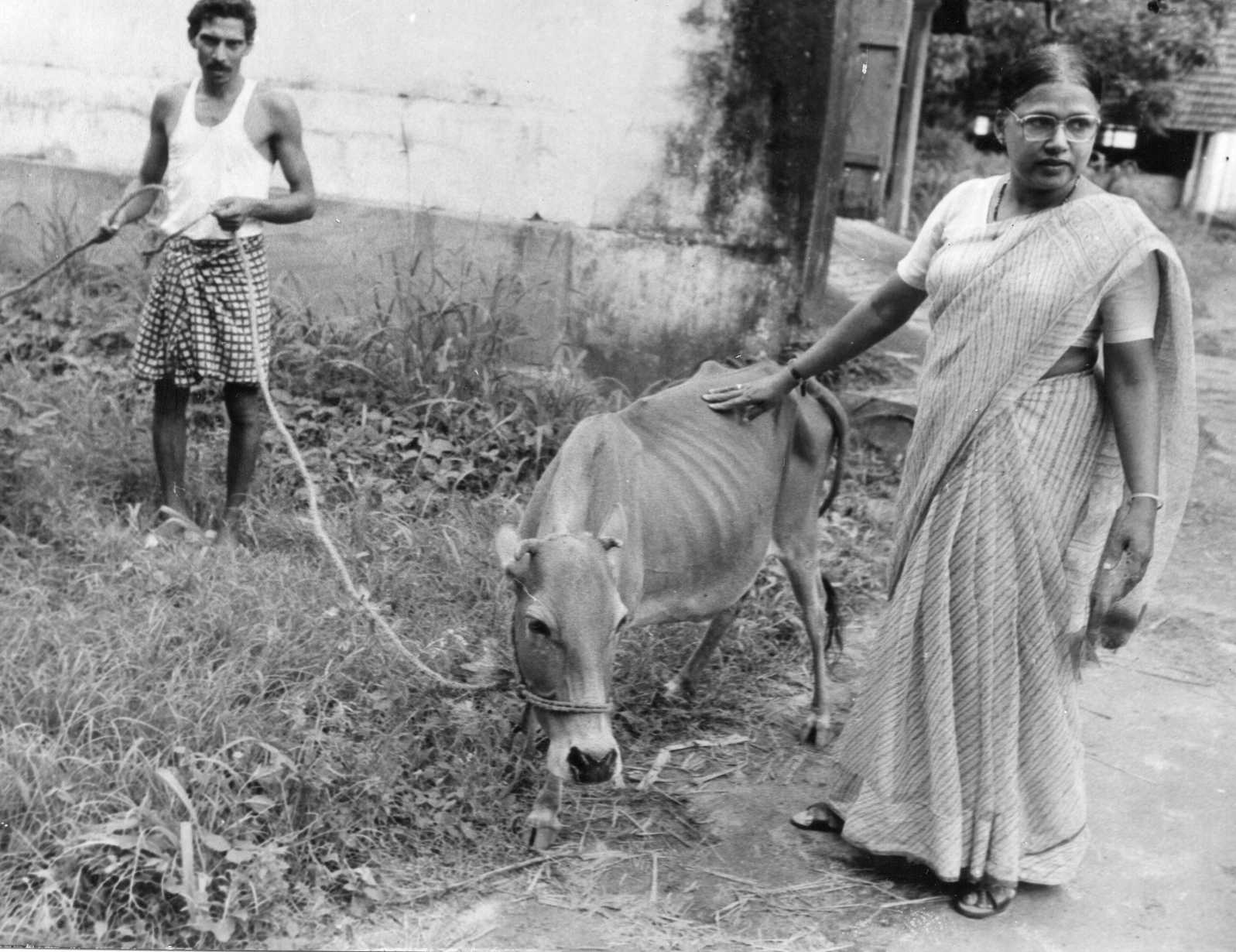
“Finally, we found our first cow through a farmer named Manoharan. But he wasn’t ready to give us his dear cow. We explained the cause to him and convinced him to sell it to us. A fund of Rs 65,000 was allotted by the university for our initiative, and we used the money to buy and take care of the cows,” she adds.
“Gradually, we started finding more cattle, and in a year, we had around 24 vechur cows. These were then kept and taken care of at the farm at the agricultural university in Mannuthy. Our first priority was to make the cows reproduce, thereby increasing their population.”
“It wasn’t easy”, says Dr Sosamma, who had to face several challenges throughout her journey.
“It was an initiative taken without the support of the government, as it was against the state’s policy of cross-breeding cows. There were people in the university who weren’t in favour of our activities. But eventually, the vechur cows were recognised as an indigenous cattle breed by the Indian Council of Agricultural Research (ICAR),” she explains.
“After almost a year, there was a tragic incident of poisoning that happened in the farm, and we lost several of our cows. There were investigations that followed, but we still don’t know who did it. The days following the incident were one of the most testing times in my life. But I didn’t want to give up, and fought for the cause,” says the veteran.
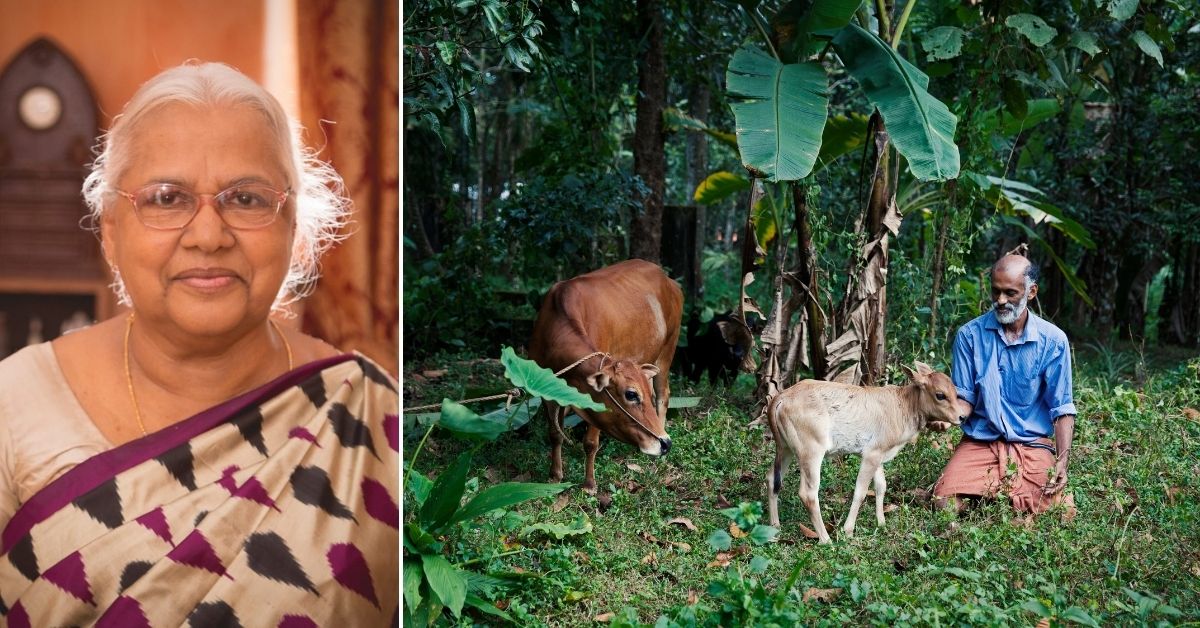
There was also another controversy surrounding the vechur cows, she elaborates. “In 1998, an environmentalist claimed that the DNA of the vechur cattle breed was patented by Scotland’s Roslin Institute. This led to a stir in the Indian research field. There was a lot of resistance towards our work of conserving them. But finally, after two years of investigation, the claim was proved to be wrong.”
“In 1998, we formed a trust — Vechur Conservation Trust — in order to increase support and participation from farmers as well as the researchers. After all the controversies, we realised the need for a trust that would help us have a community partnership in this initiative. The trust now helps farmers by providing them with the germplasm of vechur cows, mainly semen from purebred bulls,” she says.
There were also research and breeding programmes for the cattle breed. She adds, “Most of these programmes were in partnership with several national and international organisations like the National Biodiversity Authority (NBA), Ministry of Science and Technology, Food and Agriculture Organization (FAO), Kerala State Biodiversity Board, NABARD, and United Nations Development Programme (UNDP).”
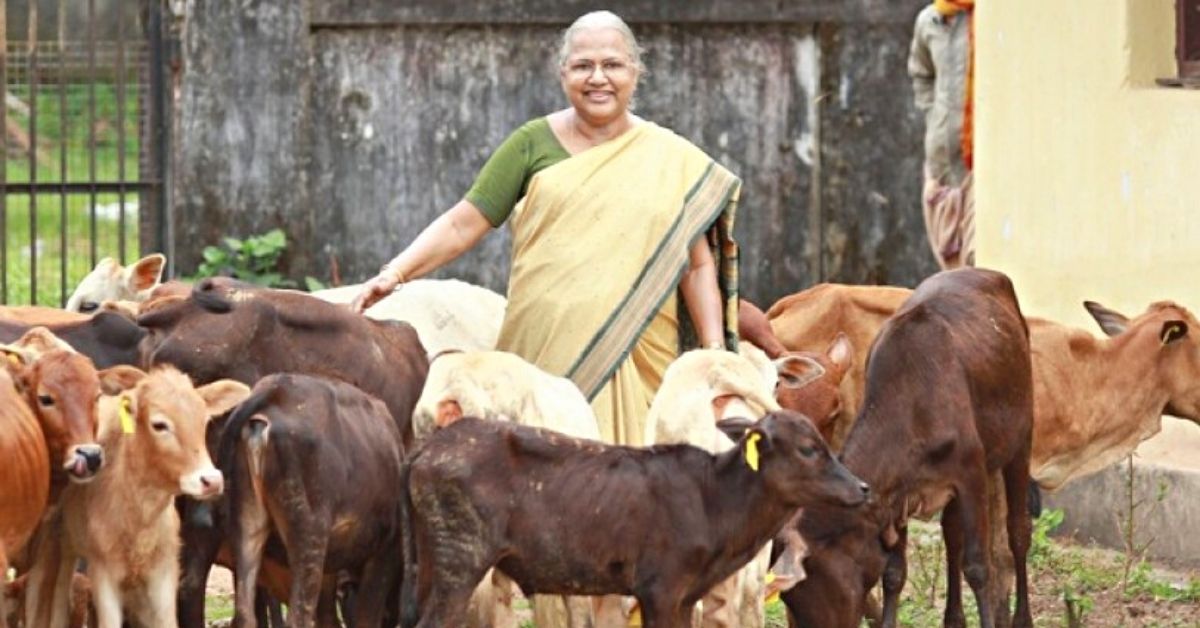
The journey that started with a mission to save the indigenous cattle breed has succeeded in stabilising its population. “Now there are over 5,000 vechur cows in Kerala and other parts of the country,” she says.
Dr Sosamma has received several accolades from organisations like the Food and Agriculture Organization (FAO) and United Nations Development Programme (UNDP). She is still active and works closely with the Vechur Conservation Trust.
“I didn’t expect this honour and I am really happy to have received it. There are a lot of people who are also involved in this endeavour, and this honour brings happiness to all of them as well,” she says.
(Edited by Divya Sethu)
If you found our stories insightful, informative, or even just enjoyable, we invite you to consider making a voluntary payment to support the work we do at The Better India. Your contribution helps us continue producing quality content that educates, inspires, and drives positive change.
Choose one of the payment options below for your contribution-
By paying for the stories you value, you directly contribute to sustaining our efforts focused on making a difference in the world. Together, let's ensure that impactful stories continue to be told and shared, enriching lives and communities alike.
Thank you for your support. Here are some frequently asked questions you might find helpful to know why you are contributing?













